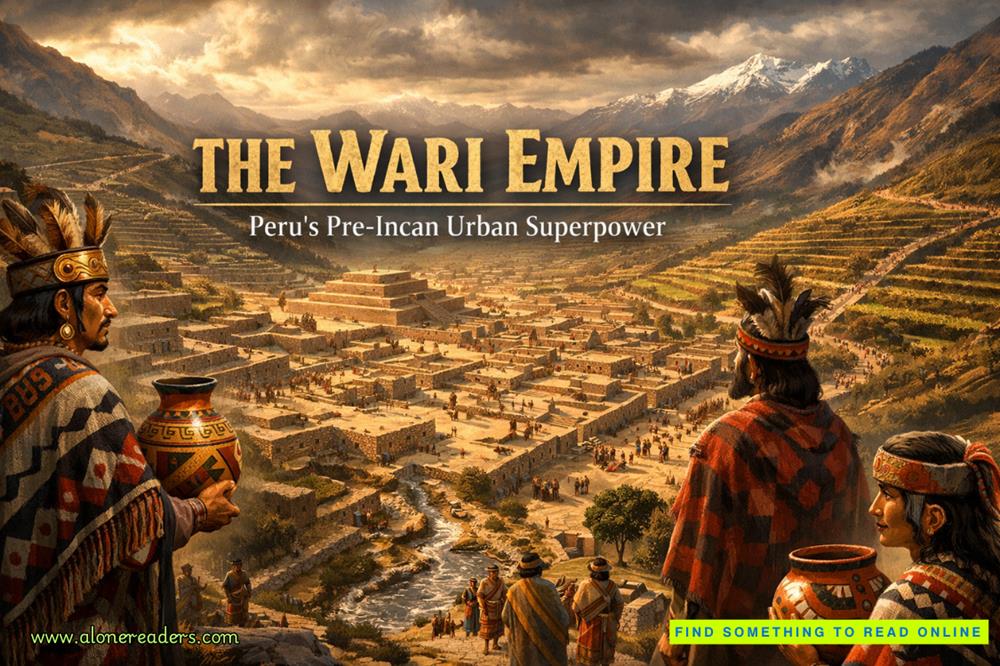The threshold felt symbolic as she stepped inside, bringing her into a space that perfectly embodied Henry himself. Warm, understated, thoughtfully arranged, with not a single wasted element. A small fire burned in a stone hearth, casting amber light across simple, mostly handcrafted furniture. Bookshelves lined one wall, filled with well-worn volumes on wildlife, conservation, and local history.
Henry stood awkwardly just inside the door, watching her take in his living space with an expression that suggested he expected criticism. “It’s not much,” he said.
“It’s wonderful,” Ivy replied with genuine appreciation, turning in a slow circle. “Did you build it yourself?”
“Most of it. My uncle Cyrus helped with the stonework.”
Ivy moved to the bookshelves, her eyes scanning the spines. “First-edition Muir,” she noted, impressed. They stood in momentary silence, dripping onto the wooden floor.
“You should change,” Henry said suddenly, as if just noticing their soaked condition. “Bathroom’s through there. I’ll find something dry.”
He disappeared briefly into what must have been his bedroom, returning with a faded flannel shirt and soft sweatpants. “These will be too big, but they’re warm.”
Ivy accepted the clothes, their fingers brushing again with that same electric awareness. She retreated to the small bathroom, closing the door with a soft click.
Alone in the narrow space, Ivy peeled off her wet clothing, hanging each piece carefully over the shower rod. The bathroom, like the rest of the cabin, was simple but well-appointed. Natural soaps sat in a stone dish. A handwoven basket held neatly folded towels. The mirror above the sink reflected her flushed face and wild, damp curls.
She pulled on Henry’s clothes, immediately enveloped in his scent. The flannel shirt hung to her mid-thigh, the sleeves extending well past her hands until she rolled them back. The sweatpants required tightening the drawstring to its limit and rolling the waistband to keep from tripping. Despite the awkward fit, the clothing felt surprisingly intimate, as if she were wrapped in Henry’s embrace.
Her bear hummed with contentment at the sensation, recognizing its mate’s scent on her skin. Ivy inhaled deeply, allowing herself a moment of pure animal satisfaction before carefully compartmentalizing the reaction. She couldn’t afford to let her bear’s certainty override her human caution.
When she emerged, Henry had changed as well, into dry jeans and a dark green henley that emphasized the breadth of his shoulders. He stood at a small stove in the kitchen area, stirring something that filled the cabin with a rich, savory aroma.
“Venison stew,” he explained without turning around. “Should warm you up.”
“It smells amazing,” Ivy said, self-consciously tugging at the oversized shirt.
Henry glanced back, his expression shifting when he saw her in his clothes. Something possessive and primal flashed in his eyes before disappearing behind his usual reserve.
“Have a seat,” he said, nodding toward a small table positioned to view both the fire and the front windows.
Ivy settled into a surprisingly comfortable wooden chair, watching as Henry moved around his small kitchen. For a man who gave the impression of being uncomfortable in most spaces, he showed remarkable ease in his own domain.
“You took a big risk coming to help me,” Ivy said as he placed a steaming bowl in front of her. “Thank you.”
Henry shrugged, taking the seat opposite. “These mountains get dangerous fast when storms hit. Couldn’t leave you out there.”
“Have you always been so protective of others, or just the forest?” Ivy asked, taking a spoonful of the rich stew.
The question seemed to catch him off guard. “Both, I guess,” he answered after a thoughtful pause. “Hard to separate them sometimes.”
They ate in silence for several minutes. The stew tasted of herbs Ivy recognized from the mountainside, expertly balanced with the venison’s richness. Outside, the storm continued to rage, making the cabin’s warmth feel all the more precious.
“Why forestry?” Ivy asked eventually. “Your family owns the largest ranch in the area. Most people would have stayed with the family business.”
Henry’s expression tightened momentarily, then relaxed as he considered the question. “Tried ranching. Didn’t fit.”
“What happened?”
He set down his spoon, looking into the fire rather than at her. “College, originally. Environmental science at Oregon State.Came back planning to implement sustainable grazing practices on Timber Bear. Dad and my brothers already had systems in place. Different approaches.”
“They didn’t welcome your ideas?”
“They listened. Implemented some. But the ranch runs on tradition as much as innovation.” Henry’s voice softened. “Found myself spending more time in the forests than the pastures. Ranger service made more sense eventually.”
“Your family didn’t mind?”
Henry’s mouth quirked in what might have been a suppressed smile. “Dad said I’d always been more bear than rancher anyway.”















